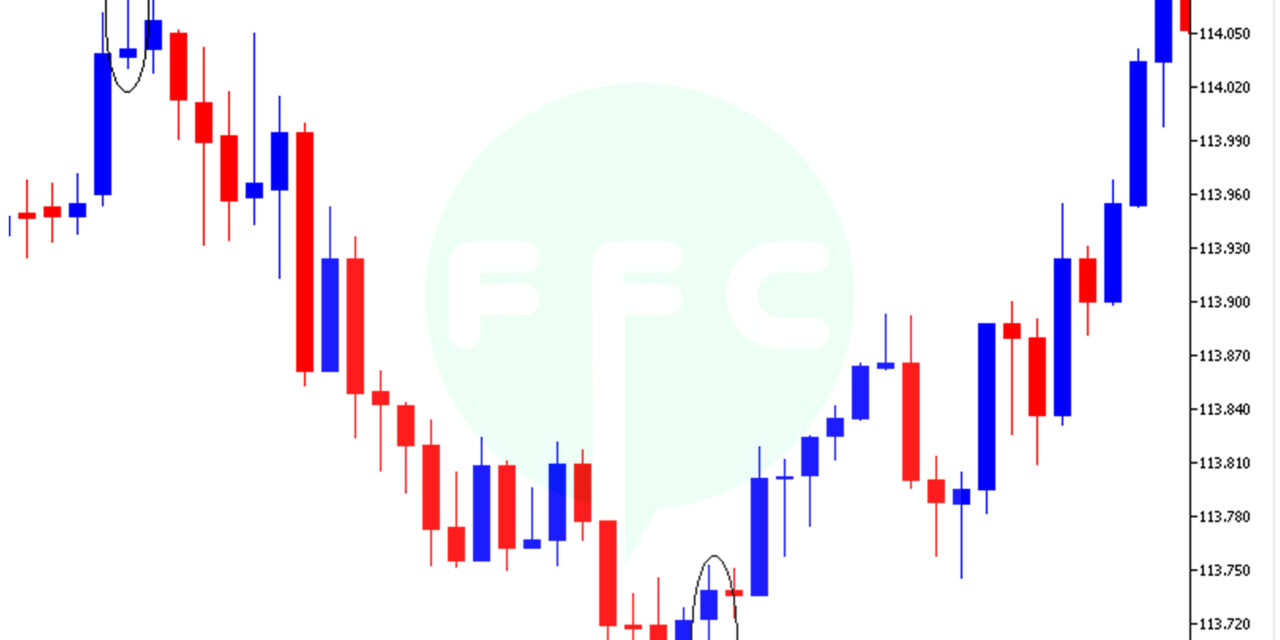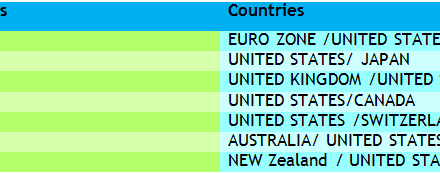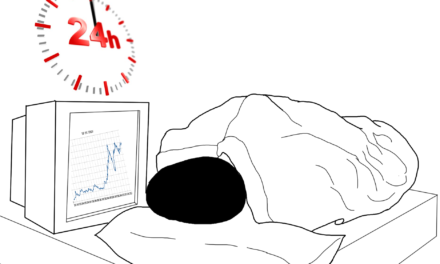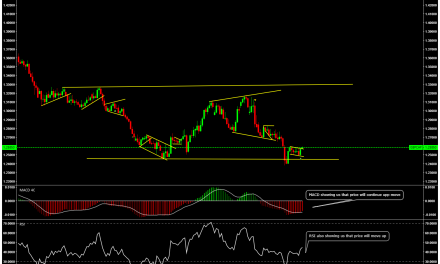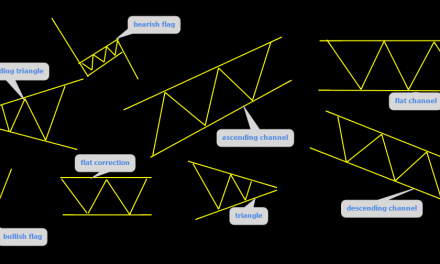Trading reversal candlestick patterns with support and resistance is the best strategy one can trade. It is the easiest and common strategy that I would recommend for anyone trading especially for the first time.
To trade reversal candlestick patterns with support and resistance, requires you to;
- First know how to identify support and resistance levels on the forex market chart.
- Spot the reversal candlestick patterns on the support and resistance levels.
- Then take trade after confirmation.
Before we get into the details, let’s first have a recap on reversal candlestick patterns and support and resistance;
Reversal candlestick patterns:
These are candlesticks which signal possible price reversals when they form in a trend. The moment you see these candlestick patterns form, know there is a possible reversal or retracement in the trend.
There are two types of reversal candlestick patterns.
The bullish reversal candlestick pattern and bearish reversal candlestick pattern.
The bullish reversal candlestick pattern in a trend indicates that the down trend is about to reverse to an uptrend. On contrary, the bearish reversal candlestick pattern indicates that an uptrend is about to reverse to a downtrend.
These include;
The doji candlestick and morning star
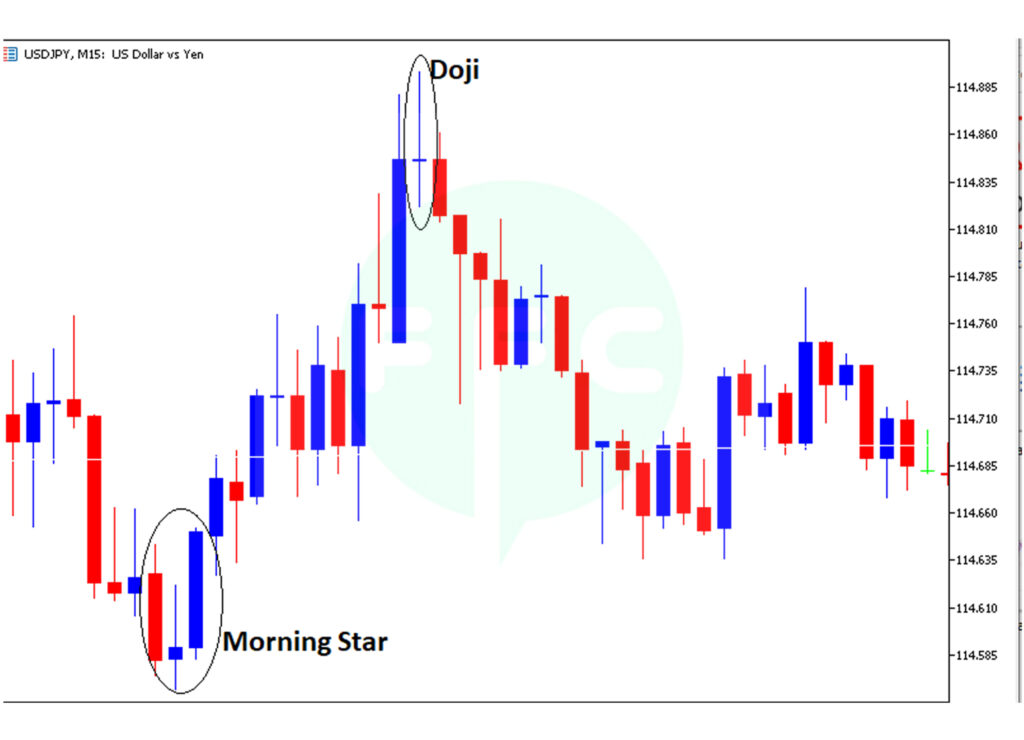
Evening star and bullish Engulfing Pattern
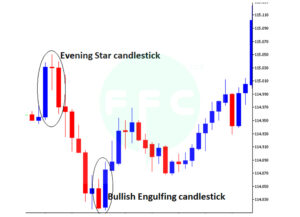
Bearish engulfing and Dark Cloud Cover
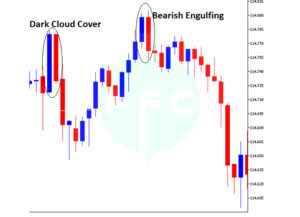
Now that you know what reversal candlesticks are, let us take a quick look at support and resistance.
What are support and resistance levels and how to identify them on the forex market chart?
Support and resistance levels are like price floors and price ceiling. You identify support when price is falling or in a downtrend. At the same time, identify price resistance level when price is rising or in an uptrend.
Price support levels are those area on the forex market where prices falling find it difficult to go through/continue.
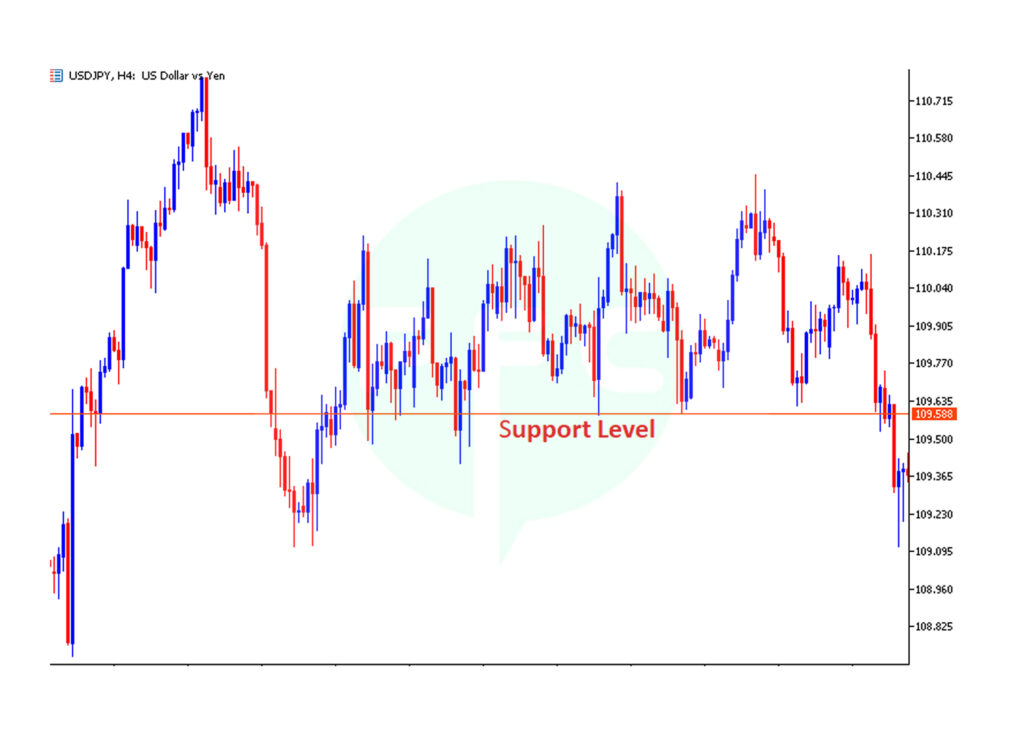
On the other hand, a resistance is a level in the market where rising prices find it difficult to continue rising. In other wards falling prices will congest or reverse when it reaches a support and so does rising prices on resistance.
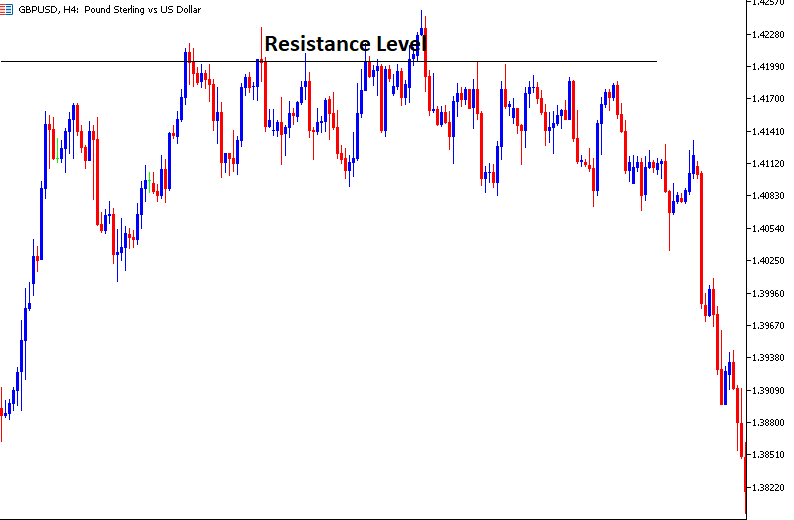
To identify the support and resistance in the market, you may need a help of the technical analysis tools. Some of the tools include, the horizontal line, the trendlines, channels, and the Fibonacci retracement tool. A side from that, you can also identify support and resistance levels using a moving average indicator.
Now that you know what to do, let’s dig in to how you can trade reversal candlestick patterns with support and resistance.
How do you add support and resistance on your trading chart?
First you must own a platform on which to trade from. The most common is the MT4/MT5 trading platform.
Second you need to study and explore your platform so that you know where to find these tools in case you want to use them. Also know how they appear on the platform.
A horizontal line, is a small straight line, a trendline is a tilted line and Fibonacci retracement has small dotted lines or just lines but come more than one.
These tools are always to the top right corner of the platform. If you are missing any, you can always go to insert tab, follow the dropdown and select the respective tool to add.
Now this is how you add it to the chart.
How to add a tool on your chart
Click on the respective tool to add. For example, a horizontal line.
Then move your cursor to your chart where you want to put, then click on the chart. It will add instantly. In case you not satisfied with the position, don’t worry, you can always adjust it.
Just double click on the line to make sure your line has point markings on it. If it has already, then don’t double click.
Place your cursor again on the line, hold left click and move the line to your preferred level/position. Then double click again to successful add the line. Do the same for all tools.
To make more changes on the tool, for instance to change colour or any other properties.
Place the cursor again to the line/tool.
Right click, then select properties then the option you want to change from the drop line. Make the changes as your preference and click ok.
If you want to delete the tool, follow the same procedure, but this time select delete instead of properties, then click ok.
You have successfully added your tool or deleted it.
How do you trade reversal candlestick patterns with support and resistance?
Like I mentioned earlier, look for support levels when price is falling and resistance when price is rising.
On your trading chart, prices move either up or down or sometimes sideways.
At the support/resistance level, we expect price to either congest or reverse most of the time. However, this may not happen all the time. This is why you need reversal candlestick patterns for extra confirmation for your trade signals.
Price may congest and reverse or congest and break or just revers e or break without congesting.
Identify support and resistance levels on your trading chart
First of all, you have to identify the support and resistance levels. You can either use the horizontal line or the trendline.
However, if price is moving side ways hitting both support and resistance levels, use the channel tool or just draw two horizontal lines above the price and below the price.
This way you will form the channel. You can do the same with trendlines for trending prices.
Then, you need to know where to price is likely to go.
For example, if in an uptrend, and price reaches resistance, two scenarios are likely to happen.
Price can either break the resistance and continue going upwards. In this case, look for buy signal confirmation.
Or else, look for a sell signal confirmation if you notice that price is actually likely to reverse on resistance.
On the other hand, if price is in a downtrend, and approaches the support level. It will either break through or reverse. On break, look for sell signal confirmations. If it reverses, look for buy signal confirmations.
In other words, take trade only when the signal has given a confirmation that it is either a breakout or a reversal. Like I said earlier, you can add reversal candlestick patterns to your indicators for signal confirmations.
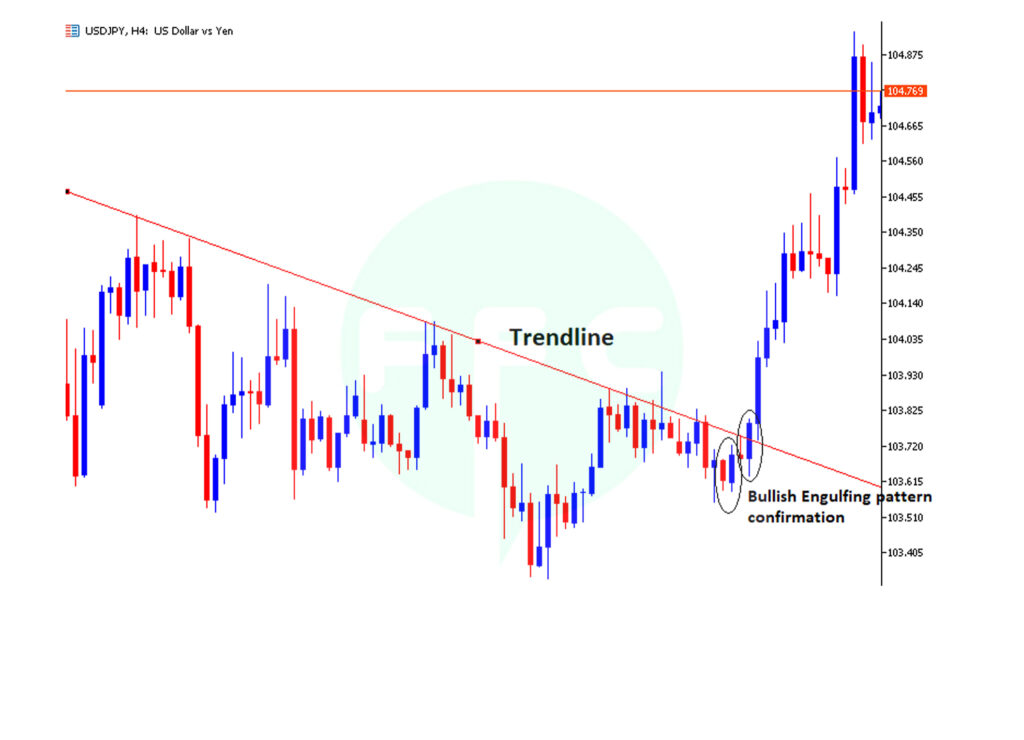
From the above chart, we have a bullish engulfing pattern as our entry confirmation for a breakout.
A bullish reversal candlestick pattern signals reversal on support and breakout on resistance.
A bearish reversal candlestick pattern on contrary signals price reversal on resistance and possible breakout on support.
Example of a bearish reversal pattern on resistance and bullish pattern on support;
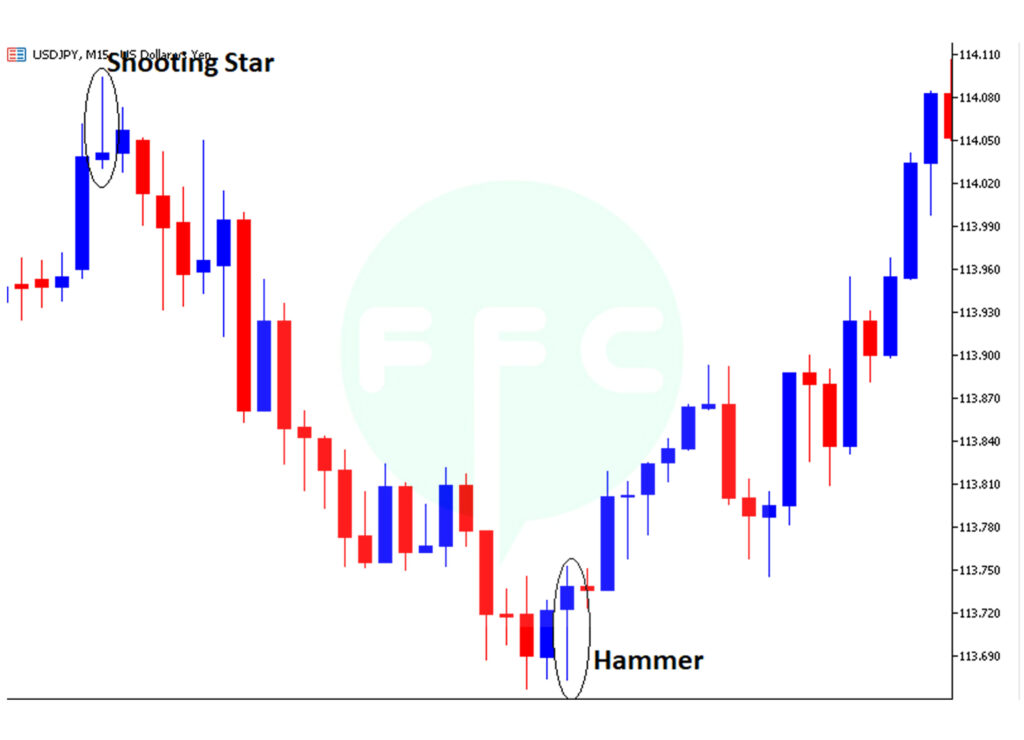
What are the common reversal candlestick patterns that may have a significance on support and resistance you should look for?
- A doji
- Bearish engulfing pattern
- An evening star
- A shooting star
- Bullish engulfing pattern
- Moring star
- hammer
After spotting a reversal candlestick pattern for instance a shooting star on resistance, wait for the formation of the next candle for confirmation. We now know that a shooting star is a bearish reversal pattern.
Therefore, in this case, our next candlestick to form for us to get confirmation should be bearish. If a bullish candlestick forms instead, wait again until you get a bearish candlestick.
The confirmation candlestick should have a full body and close below the shooting star or reversal candlestick pattern below resistance.
Final Words
As a rule of thumb, always take risk management as key before or after taking any entries.
Having a good confirmation does not guarantee that the market will 100% go to your predicted direction. Anything can happen in the market. That’s why you need to always prepare.
Use a stop loss. In this case, your stop loss should be slightly above the next resistance level. On breakout, put stop loss below your entry point depending on your risk to reward ratio.
Do the same when trading support. Put stop loss above your entry for a breakout sell signal and below for a buy signal in regard to your risk to reward ratio.
Other wise follow your trading rules and you will enjoy trading as a play.
Good luck trading.

